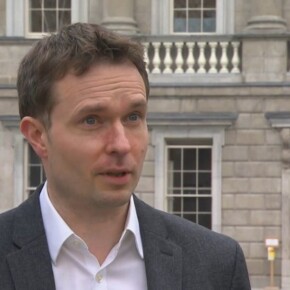Chief Executive system in Dublin is “anti-democratic,” says Councillor
Mike Finnerty 07 Nov 2023
Independent Councillor Tania Doyle has said the current system of the Chief Executive having more power and control than elected councillors is “anti-democratic” and is contributing to what she calls a “democratic deficit.”
A draft report by the Congress of Local and Regional Authorities (CLRAE), a body within the 46-nation Council of Europe, has found that Ireland is in violation of several key provisions of the European Local Self-Government Charter.
The findings state that local councils in Ireland are near the bottom of the European Local Self-Government Charter, with only Hungary, Russia and Moldova ranking lower in terms of what powers local councils possess.
Doyle noted that since the inception of the Irish State, there has been a “persistent undercurrent of distrust and apprehension between local government bodies and the central authority.”
The report calls attention to the centralised nature of Irish local government, highlighting the imbalance between elected councillors and the unelected chief executives in local authorities, along with extensive administrative oversight.
One of the most note-worthy findings of the report was the discovery that Government only spends 8% of public expenditure on local authorities, which is well below the European Union average of 23%.
Doyle said, “in essence, Irish councillors possess fewer powers than their counterparts in most other countries, with limited financial autonomy, while over time, the position and powers of Chief Executives have grown stronger.”
This, Doyle asserts, has led to a “lopsided dynamic that marginalises the elected councillors,” and the erosion of democratic accountability raises concerns about the viability of the current system.
The report has offered several recommendations to address the issues, namely the devolution of more powers and responsibilities to local and regional authorities.
Urban and town councils were abolished in 2014 under the Local Government Reform Act, widely stated to be a result of austerity measures of the era.
Doyle, who sits on Fingal County Council, said the report highlighted the need for a “rebalancing of powers” and a shifting of authority from the executive to the elected council.
“This proposal seeks to address the democratic deficit and outdated, anti-democratic practices that have persisted for far too long,” she said.











